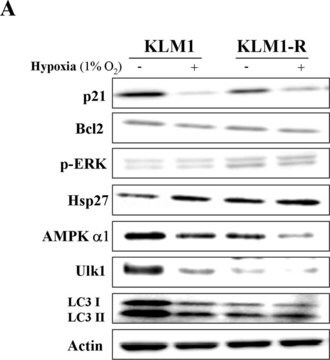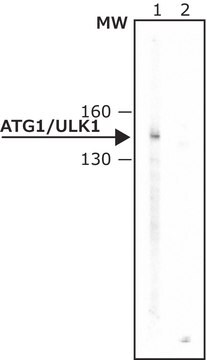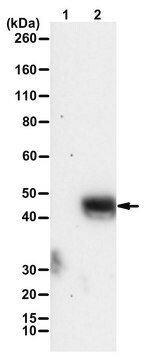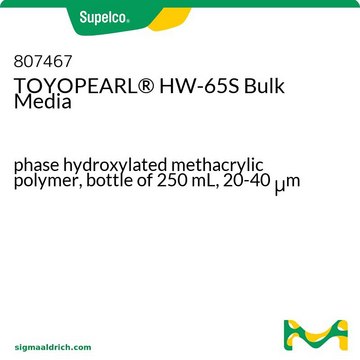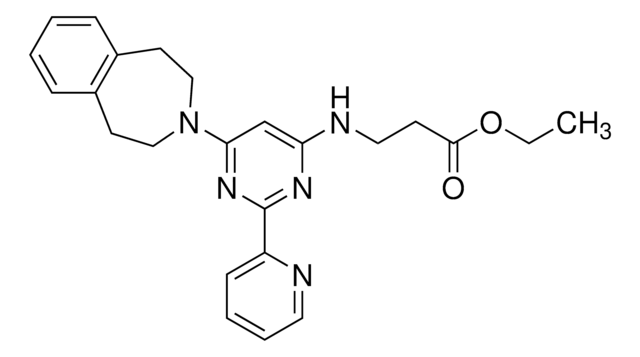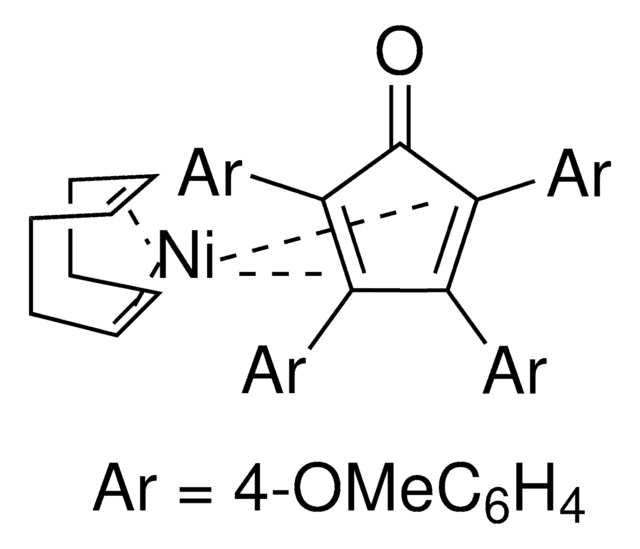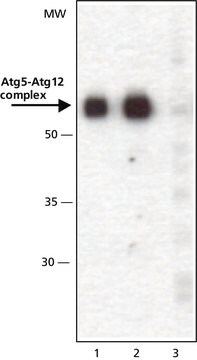ABC213
Anti-phospho ULK1 Antibody (Ser777)
from rabbit, purified by affinity chromatography
Synonim(y):
Serine/threonine-protein kinase ULK1, Serine/threonine-protein kinase Unc51.1, Unc-51-like kinase 1
About This Item
inhibition assay
western blot: suitable
Polecane produkty
pochodzenie biologiczne
rabbit
Poziom jakości
forma przeciwciała
affinity isolated antibody
rodzaj przeciwciała
primary antibodies
klon
polyclonal
oczyszczone przez
affinity chromatography
reaktywność gatunkowa
human
metody
inhibition assay: suitable (peptide)
western blot: suitable
numer dostępu NCBI
numer dostępu UniProt
Warunki transportu
wet ice
docelowa modyfikacja potranslacyjna
phosphorylation (pSer777)
Opis ogólny
Immunogen
Zastosowanie
Western Blotting/Peptide Inhibition Analysis: 2 µg/mL of this antibody detected phospho ULK1 (Ser777) in 10 µg of A431 cell lysate.
Jakość
Western Blotting Analysis: 2 µg/mL of this antibody detected phospho ULK1 (Ser777) in 10 µg of A431 cell lysate.
Opis wartości docelowych
Inne uwagi
Nie możesz znaleźć właściwego produktu?
Wypróbuj nasz Narzędzie selektora produktów.
Kod klasy składowania
12 - Non Combustible Liquids
Klasa zagrożenia wodnego (WGK)
WGK 1
Temperatura zapłonu (°F)
Not applicable
Temperatura zapłonu (°C)
Not applicable
Certyfikaty analizy (CoA)
Poszukaj Certyfikaty analizy (CoA), wpisując numer partii/serii produktów. Numery serii i partii można znaleźć na etykiecie produktu po słowach „seria” lub „partia”.
Masz już ten produkt?
Dokumenty związane z niedawno zakupionymi produktami zostały zamieszczone w Bibliotece dokumentów.
Produkty
Autophagy is a highly regulated process that is involved in cell growth, development, and death. In autophagy cells destroy their own cytoplasmic components in a very systematic manner and recycle them.
Nasz zespół naukowców ma doświadczenie we wszystkich obszarach badań, w tym w naukach przyrodniczych, materiałoznawstwie, syntezie chemicznej, chromatografii, analityce i wielu innych dziedzinach.
Skontaktuj się z zespołem ds. pomocy technicznej